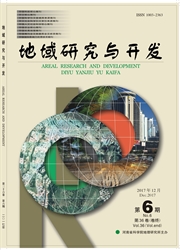

 中文摘要:
中文摘要:
历史文化商业街若能凸显地方性特征将更具吸引力,经营者的地方感不仅是商业街地方性水平的重要标志,更是地方性建构的主体基础。对屯溪老街经营者地方感进行了实地调研,初步探讨了经营者地方感的形成机制,并为历史文化商业街的优化发展提出了建议。研究结果表明:经营者地方感不仅受到地方文化景观和经营活动绩效的影响,更与经营者同游客的互动交流相关,而这也将影响到历史文化商业街的吸引力。老街商业开发的模糊定位一定程度上削弱了其地方性,但丰富的历史文化景观以及经营者与游客的频繁互动,则有助于增进经营者地方感。由此,历史文化商业街的发展不仅要重视保护特色文化景观,更要优化商业活动品质,促进经营者与游客的互动,这是增进经营者地方感和商业街吸引力的基本保障。
 英文摘要:
英文摘要:
The historical cultural commercial street may be more attractive if its local characteristics are highlighted. Shopkeepers' sense of place may not only play very important role in the place construction, but also represent the distinctive features of the commercial street. Combined with the survey on shopkeepers' sense of place in Tunxi old street, this paper mainly explores the formation mechanism of shopkeepers' sense of place, and then put forward some suggestions for its optimal development. It shows that shopkeepers' sense of place is not only affected by the local cultural landscape and the performance of business activities, but also related to its interaction with visitors, which will also strengthen appeal of historical cultural streets. Relatively disordered commercial devel- opment has dispelled some local features in Tunxi street. However, its distinctive cultural landscapes and frequent interaction with visitors will improve shopkeepers' sense of place. Thus, the development of historical cultural commercial streets should pay attention to the following three aspects: the preservation of local landscape, the interaction between shopkeepers and visitors and the optimization of commercial activities, which will be beneficial to both construction of shopkeepers' sense of place and attraction of commercial streets.
 同期刊论文项目
同期刊论文项目
 同项目期刊论文
同项目期刊论文
 期刊信息
期刊信息
